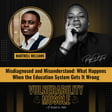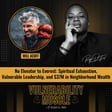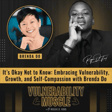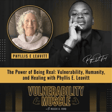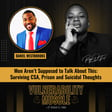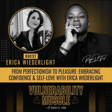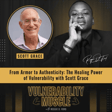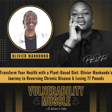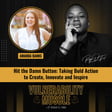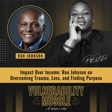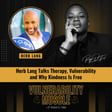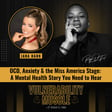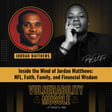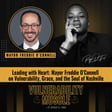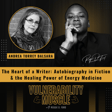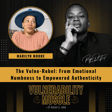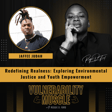
023 - People-centered Leadership: Balancing Business and Vulnerability with John Woerner
In this captivating episode, Reggie Ford engages in a deeply insightful conversation with John Woerner, entrepreneur and heart attack survivor, about the intricate balance between pursuing personal passions and mastering the art of delegation in business. As they explore John's remarkable journey from childhood gaming enthusiast to successful business owner, they uncover the profound impact of gaming on his strategic acumen. The discussion delves into John's philosophy of prioritizing mastery over breadth of skills and the importance of aligning with leaders who recognize individual strengths. Through poignant reflections on family dynamics, stress management, and the transformative power of vulnerability, John offers invaluable wisdom for creating a fulfilling and resilient life both personally and professionally.
Highlights:
⭐️ John introduces himself, highlighting his identity rooted in faith, his role as a father and husband, and his journey as a small business owner.
⭐️ John reflects on the life-changing lessons he learned from surviving a heart attack at 32 and how it reshaped his priorities.
⭐️ Discussing the definition of success and the importance of balancing career achievements with personal well-being and family time.
⭐️ John talks about dealing with post-heart attack anxiety and shares his strategies for managing anxiety attacks.
⭐️ John reveals how his gymnastics background and a supportive coach shaped his people-centered approach to life and work.
⭐️ Reggie Ford discusses the concept of focusing on strengths rather than weaknesses, drawing parallels with sports scouting.
⭐️ John discusses the concept of being a "jack of all trades" versus mastering specific skills, advocating for the pursuit of excellence in one's chosen area.
⭐️ Reggie discusses the challenges of delegation and the importance of trusting others to handle tasks effectively.
⭐️ John shares how his early experiences with games like SimCity and Civilization shaped his business acumen and strategic thinking.
⭐️ The conversation touches on the reality behind the so-called overnight success and the years of practice and failures that lead to it.
⭐️ John grapples with the idea of stepping out more to share his knowledge for the benefit of others, despite being content with his current life.
📲 Connect with Reggie
Instagram - https://instagram.com/reggiedford
Facebook - https://facebook.com/reggiedford
LinkedIn - https://linkedin.com/in/reggiedford
Twitter - https://twitter.com/reggiedford
YouTube - https://youtube.com/@reggiedford
Website - https://reggiedford.com
Book - https://amzn.to/487OqJD
Podcast - https://reggiedford.com/vulnerabilitymuscle
Podcast’s Instagram - https://instagram.com/vulnerabilitymuscle
📲 Connect with John
LI - https://www.linkedin.com/in/john-woerner-2b3214155/
Website - https://jsquaredsystems.com/
